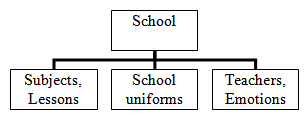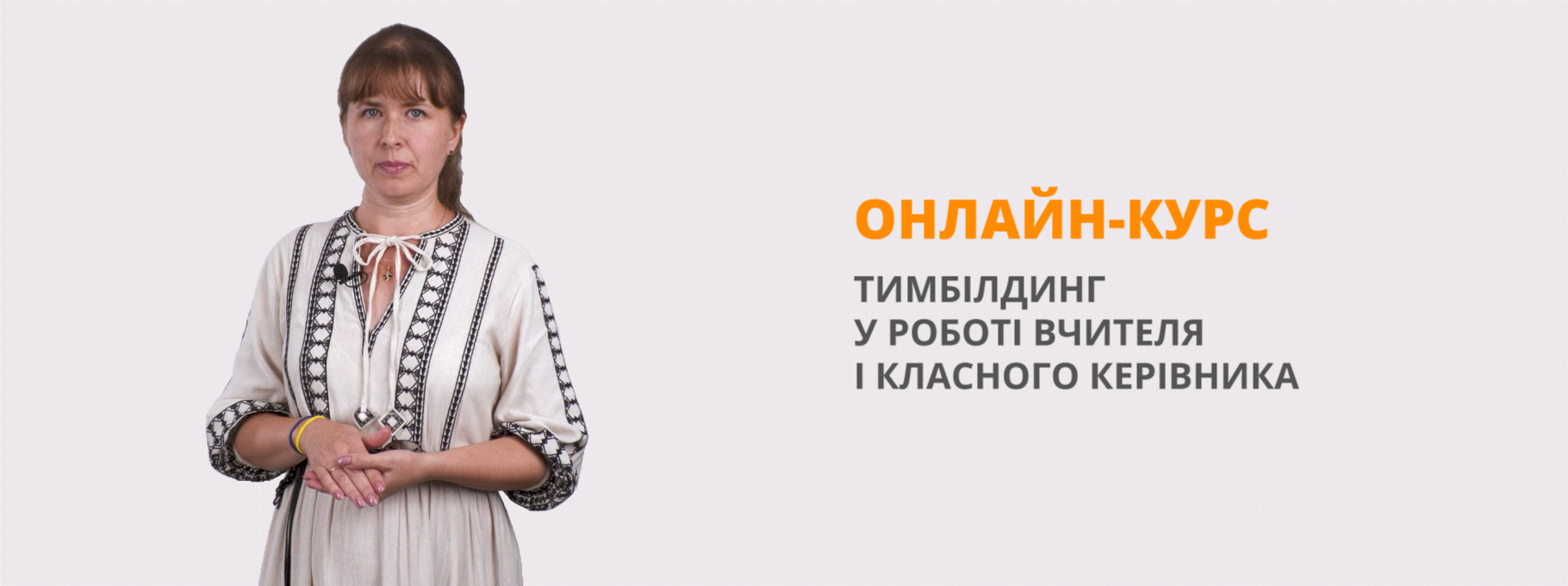Конспект заняття за темою: "Взаємовідносини та навчання. – Social skills and school."
Заняття 5.
Дисципліна: «Іноземна мова»
Tема: Взаємовідносини та навчання. – SOCIAL SKILLS AND SCHOOL.
Умовні речення І типу.
Мета заняття:
Методична:
- удосконалення лексико-граматичних навичок студентів
використання різних форм і методів проведення заняття;
- вдосконалення навичок письма.
Дидактична:
Навчальна: -закріпити ЛО з теми;
-повторювати розділ «Conditionals I»;
- закріпити розділ «Conditionals I» у вправах за темою;
-активізувати ЛО теми в мовних вправах;
-організувати тренування студентів з граматиці та лексики;
- формувати навички діалогічного та монологічного мовлення.
Розвивальна: -розвивати стійкий інтерес до предмету;
-розвивати творчі здібності та активізувати розумову діяль-
ність студентів;
-розвивати вміння застосовувати інформацію у новій ситуації;
-творчо сприймати навчальний матеріал і осмислювати його;
Виховна: -досягнути успіху і самореалізації особистості;
- виховувати зацікавленість у розширенні своїх знань;
-стимуляція почуття гідності та самоповаги;
-формування самостійності, активності, творчої самоповаги;
Вид заняття: практичне.
Технічні засоби навчання: дошка.
Методичне забезпечення: підручник «Учебник английского языка. 10 класс»
Карпюк О., Тернополь: Астон, 2010р.,
с.64-68, додатковий матеріал.
Хід уроку
I. Організаційна частина уроку.
1. Greeting. Вчитель вітає студентів.
T: Good morning, students. Glad to see you.
S: We are glad to see you too.
T: Sit down, please. Tell me are you going to work hard today?
S: Yes, we are.
T: Let us start then!
II. Підготовка до сприйняття іншомовного мовлення.
1. Повідомлення теми та мети уроку.
Т: Dear friends! Today we are going to speak about people who did or are doing smth for their people, about social problems in the world and in our country, and what people should do to make this society better. I`d like to begin the lesson with the words of S. Wright “Respect should be earned by actions and not acquired by years.”_Will you comment on the quotation?
2. Фонетична зарядка. Pronunciation drill.
2.1 T: try to answer such questions.
1) What springs to mind when you hear the word ‘school’?
2) What is your first memory of school?
3) Were you happy with your school?
4) Why do you think it is that many children don’t like school?
5) What do you like best about your school?
6) What do you like the least about your school?
7) What are some of the rules you have to follow at your school?
8) Which rules do you think are unfair?
9) Have you ever got caught breaking any school rules?
2.2 T: Try to draw a spidergram.

2.3 Тренування навичок монологічного мовлення студентів.
T: Look through the ex. 2-3 p.64-65 and try to answer the questions.
Вчитель пропонує ознайомитися з інформацією вправи 2 та дати відповіді на запитання. Read the essay again and decide whether the statements are true or false.
Ex. 3, p65.
2.4 Brainstorming.
T: T: I think it's time to entertain ourselves a bit. Look at these words, unscramble these school subjects.
- shority (history)
- madar (drama)
- leshing (English)
- shypsci (physics)
- manger (German)
- chenrf (French)
- gioloby (biology)
- phragyeog (geography)
- rat (art)
III. Основна частина уроку.
2. Пред’явлення лексичного матеріалу. Presenting vocabulary.
Introduction. Ознайомлення студентів з ЛО теми спілкування. Студенти ознайомлюються зі словами та словосполученнями, а також з додатковою лексикою. Вчитель звертає увагу студентів на складні випадки
читання або перекладу слів.
T: Let’s remember the list of words and phrases which based on the writing process. Pay attention to remember:
|
A curriculum An opportunity Particular Mutual To acquire To provide To realize It is obviously Knowledge Respect Successful Private school To doodle
otherwise |
Розклад Можливість особистий Загальний, взаємний Придбати, отримати Забезпечити Зрозуміти Це є очевидно Знання Повага Успіх Приватна школа Машинально малювати (каракулі) Інакше, в іншому випадку |
|
1. a curriculum 2. a knowledge
3. a skill
4. successful 5. particular
6. to acquire
7. a respect |
a) to learn or develop knowledge, skills by your own efforts b) the subjects that are taught by a school or the things that are studied in a particular subject c) the facts, skills and understanding that you have gained through learning or experience d) being the one that you are talking about, and not any other e) admiration for someone, especially because of their personal qualities, knowledge or skill f) an ability to do something well, especially because you have learned and practised it g) having very good effect or result |
T: Match the words with the definitions, Ex. 4, p. 66.
3. Тренувати студентів у вживанні ЛО. Language work.
3.1 Семантизація ЛО теми.
Т: Work in pairs. Take turns asking and answering the questions.
Do the ex. 5-6,p.66-67.
- Do you like school?
- Do you know anybody who hates school? Why does he/she hate it?
- In what subjects are you doing well?
- Are you pressed by your parents and teachers?
- How many friends do you have among your classmates?
- What grades do they get in most subjects? In English?
- Do you use the Internet? What for?
- Can the Internet help in your study? Prove.
- What extracurricular activities do you or your friends take part in?
- Do you take part in any sports competitions?
3.2 T: Read the British teenagers’ opinions of their schools.
Compare them with your own opinions.
Jenny:
What makes me mad is teachers who think that boys are cleverer in Maths and Science subjects.
Martin:
Everything would be ok if we didn’t have grades, tests and reports all the time, if there was less pressure.
Janet:
Most lessons are boring. Sometimes I Must have to doodle on my desk or write letters. Otherwise I’d fall asleep.
Gary:
It’s always the teacher who decides what we’re going to do. What we need is more democracy.
Carol:
I’d like school better if I could talk whenever I like. Normally we Must have to be quiet, listen and nod our heads.
Steve:
So far I haven’t learned much to help me in later life.
What’s the point of doing art, music and maths, for example?
Melanie:
We can’t do without school. School is not a place for fun like discos.
3.3 T: Match the words in the bo[ with their definitions below.
|
boarding school, graduate, head teacher, nursery school, primary school, private school, secondary school, state school |
1… is a school paid by the government1 which gives free education.
2… is a non-government school where you have to pay.
3… is a school for very young children at the age of 1-4.
4… is a school for young children from 4 to 11 years old.
5… is a school for older children from 11 to 18.
6… is a school where pupils live, eat and sleep.
7 … is a ‘boss’ of a school.
8 … is a person who has finished university and has a degree
(e.g. in economics).
3.4 T: Choose ‘learn’ or ‘study’ and put it in a correct tense form to complete the sentences.
1. You must … this poem.
2. We must … the map before we start
our journey.
3. She … to be a doctor by watching the work of her more experienced colleagues. 4. Mary … to swim.
5. We soon … to do as we were told in Mr Hughes’ class!
6. Mike … medicine at college because he wants to be a doctor.
7. I’m trying to … Spanish.
8. I … to ride a bike when I was five.
4. Робота з граматичним матеріалом.
4.1 Build your grammar. Study the grammar rules p.69
|
CONDITIONALS (умовні речення) Conditionals are two parts sentences which are connected with the word ‘if’. With all conditionals, when we start the sentence with ‘if’, we must use a comma. When ‘if’ is in the middle of the sentence, we don’t use a comma.
Example: If you smoke too much, you will die. You will be fat if you eat fish and chiSs everyday. |
|
1st Conditionals (ɍмовні речення 1-го тиɩу We use the 1st Conditional to express the strong possibility that something will happen in the future. We can also use it to make predictions about things we are sure about. |
|
1st Conditional = if + Present Simple + Future Simple (or Modal+ Infinitive)
Note: We use a comma after the ‘if-clause’. Example: If you leave now, you will catch the bus |
|
1st Conditional = Future Simple (or Modal+ Infinitive) + if + Present Simple
Note: We don’t use comma in the sentence. Example: You will catch the bus if you leave now.
|
4.2 Відпрацювання у вправах. Ex.1,p.70
T: Match to make up the 1st conditional sentences.
Example: If you drop that plate, it will break into a million pieces.
|
I’ll throw the magazine away she probably will fail the exam you can tell them you’ll be late you can still get the early train he can find the answer for you it will break into a million pieces you can get something to eat she will miss the opening ceremony you can call me tomorrow
|
T: Let’s check your answers.
T: Do the Ex.2,p.70
Complete each sentence in your own way.
- If I don’t get into university…
- I’ll have a big party if…
- If I pass my exams well…
- We won’t get a plane if…
- If I get my first salary…
- You’ll fail the exam if…
- He’ll be late for work if…
T: Do the Ex.3,p.70
Complete the sentence (b) in each pair so that it has a similar meaning to the sentence (a).
- a) There aren’t many TV programmes about science, so people
on’t know much about it.
b) If there … more TV programmes about science, people …
more about it.
- a) 2ther intelligent beings might inhabit the Universe. If so,
they would be very different from us.
b) If other intelligent beings … the Universe, they … very different
from us.
3. a) It’s likely there is life on other planets. If so, we are not alone.
b) If there … life on other planets, we … not alone.
4. a) The world’s population will probably continue to increase.
If so, we will need more food.
b) If the world’s population … to increase, we … more food.
IV. Заключна частина уроку.
1. Домашне завдання. Homework.
T: Your homework will be the ex 1-2, p.68-69. Вивчати нову лексику с. 65
2. Підбиття підсумків урок. Summarizing.
T: Today you have learned about two new tools that can help you be a successful writer. You will begin using the Writing Process and the Logic Tree to create your papers. Ask learners if they have any questions or concerns. Assure them that we will take it step by step and work on the paper together. After you have worked with the process you should begin to see how the tools are helpful. So your marks for today are…


про публікацію авторської розробки
Додати розробку
